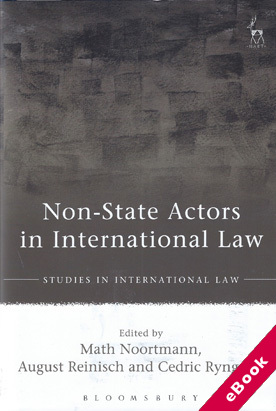
The device(s) you use to access the eBook content must be authorized with an Adobe ID before you download the product otherwise it will fail to register correctly.
For further information see https://www.wildy.com/ebook-formats
Once the order is confirmed an automated e-mail will be sent to you to allow you to download the eBook.
All eBooks are supplied firm sale and cannot be returned. If you believe there is a fault with your eBook then contact us on ebooks@wildy.com and we will help in resolving the issue. This does not affect your statutory rights.
The role and position of non-state actors in international law is the subject of a long-standing and intensive scholarly debate. This handbook explores the participation of this new category of actors in an international legal system that has historically been dominated by states.
It explores the most important issues, actors and theoretical approaches with respect to these new participants in international law. It provides the reader with a comprehensive and state-of-the-art overview of the most important legal and political developments and perspectives.
Relevant non-state actors discussed in this volume include, in particular, international governmental organisations, international non-governmental organisations, multinational companies, investors and armed opposition groups. Their legal position is considered in relation to specific issue-areas, such as humanitarian law, human rights, the use of force and international responsibility.
The main legal theories on non-state actors’ position in international law – neo-positivism, the policy-oriented approach and transnational law – are covered at the beginning of the publication, and the essential political science perspectives – on non-state actors’ role in international politics and globalisation, as well as their soft power – are presented at the end.